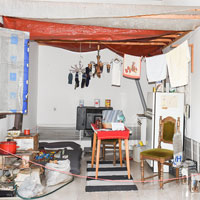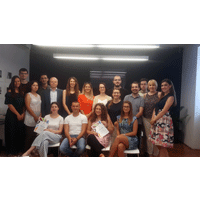EVENT ANNOUNCEMENT: Presentation of the Third Report on the Implementation of the National War Crimes Prosecution Strategy and “Regional Judicial Cooperation in the Prosecution of War Crimes: Analysis and Improvement Recommendations”

 On Thursday, 20 December 2018, the Humanitarian Law Center (HLC) will present the “Third Report on the Implementation of the National Strategy for the Prosecution of War Crimes” and the Analysis “Regional Judicial Cooperation in the Prosecution of War crimes: Analysis and Improvement Recommendations”. The presentation will take place at 11:00 in the Great Hall of the Media Centre (Terazije 3, 2nd Floor).
On Thursday, 20 December 2018, the Humanitarian Law Center (HLC) will present the “Third Report on the Implementation of the National Strategy for the Prosecution of War Crimes” and the Analysis “Regional Judicial Cooperation in the Prosecution of War crimes: Analysis and Improvement Recommendations”. The presentation will take place at 11:00 in the Great Hall of the Media Centre (Terazije 3, 2nd Floor).
On 20 February 2016, the Government of the Republic of Serbia adopted the first National Strategy for the Prosecution of War Crimes 2016-2020. The HLC has been monitoring the implementation of the National Strategy since its adoption, in order to offer its assessment of and findings on the state of implementation of this Strategy. The third HLC Report on the Implementation of the National Strategy (Report) provides an overview of the implementation of activities in the period from 1 June 2018 to 01 December 2018, in eight areas covered by the National Strategy. The report points to key deficiencies and identifies recommendations for improving the situation in these areas.
The HLC will also present its Analysis, “Regional Judicial Cooperation in the Prosecution of War crimes: Analysis and Improvement Recommendations”, which examines the existing normative framework for regional cooperation and the challenges it faces, with a view to proposing a set of recommendations for the improvement of regional cooperation and enhanced effectiveness of cooperation mechanisms.
Speakers:
- Ivana Žanić, Humanitarian Law Center
- Višnja Šijačić, Humanitarian Law Center
- Erna Mačkić, BIRN
- Jelena Đokić Jović, Documenta – Centre for Dealing with the Past
- Bekim Blakaj, Humanitarian Law Center Kosovo
Simultaneous interpretation into English will be provided.






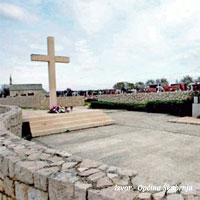
 On Sunday, November 18, 2018, we mark exactly 27 years since the commission of the crimes by members of the Yugoslav People’s Army (JNA) and Territorial Defence (TO) of Benkovac against Croatian civilians in the villages of Škabrnja and Nadin. Although the Humanitarian Law Center (HLC) filed criminal charges for these crimes with the Office of the War Crimes Prosecutor (OWCP) in November 2017, to date the HLC has no information as to whether the OWCP has taken any legal action that would lead to the trial of those responsible for this crime.
On Sunday, November 18, 2018, we mark exactly 27 years since the commission of the crimes by members of the Yugoslav People’s Army (JNA) and Territorial Defence (TO) of Benkovac against Croatian civilians in the villages of Škabrnja and Nadin. Although the Humanitarian Law Center (HLC) filed criminal charges for these crimes with the Office of the War Crimes Prosecutor (OWCP) in November 2017, to date the HLC has no information as to whether the OWCP has taken any legal action that would lead to the trial of those responsible for this crime. Today, exactly two years have passed since the Humanitarian Law Center (HLC) filed a
Today, exactly two years have passed since the Humanitarian Law Center (HLC) filed a 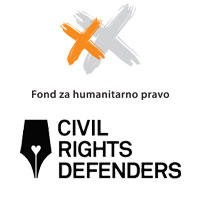

 On October 16, 2018, the Humanitarian Law Center (HLC) filed a criminal complaint with the Office of the War Crimes Prosecutor (OWCP) of the Republic of Serbia against several unknown persons, for killing three members of the Matijević family in April 1992 in Kukujevci (Municipality of Šid, Serbia).
On October 16, 2018, the Humanitarian Law Center (HLC) filed a criminal complaint with the Office of the War Crimes Prosecutor (OWCP) of the Republic of Serbia against several unknown persons, for killing three members of the Matijević family in April 1992 in Kukujevci (Municipality of Šid, Serbia).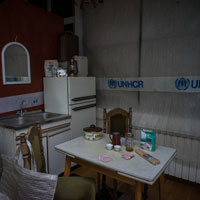
 From September 25 to October 6, 2018, the Humanitarian Law Center (HLC) and the History Museum of Bosnia and Herzegovina presented in Belgrade a part of the museum’s permanent exhibition, entitled “Besieged Sarajevo”. With photographs, documents, and hand-made items made by citizens of Sarajevo, the exhibition depicts life in the city that the Republika Srpska Army (RSA) kept under siege for 44 months. Visitors could see what life in a city without water, electricity and heating looked like, how schools operated, how children played, and how food was procured, along with other daily activities in the city that, despite everyday sniper attacks from the surrounding hills, sought to preserve the illusion of a normal life.
From September 25 to October 6, 2018, the Humanitarian Law Center (HLC) and the History Museum of Bosnia and Herzegovina presented in Belgrade a part of the museum’s permanent exhibition, entitled “Besieged Sarajevo”. With photographs, documents, and hand-made items made by citizens of Sarajevo, the exhibition depicts life in the city that the Republika Srpska Army (RSA) kept under siege for 44 months. Visitors could see what life in a city without water, electricity and heating looked like, how schools operated, how children played, and how food was procured, along with other daily activities in the city that, despite everyday sniper attacks from the surrounding hills, sought to preserve the illusion of a normal life. 
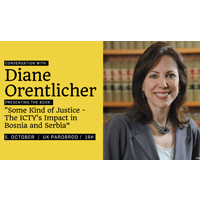 On October 5th, on the occasion of the presentation of her new research published in the book “Some Kind of Justice – The ICTY’s Impact in Bosnia and Serbia”, the Humanitarian Law Center will host professor Diane Orentlicher.
On October 5th, on the occasion of the presentation of her new research published in the book “Some Kind of Justice – The ICTY’s Impact in Bosnia and Serbia”, the Humanitarian Law Center will host professor Diane Orentlicher.